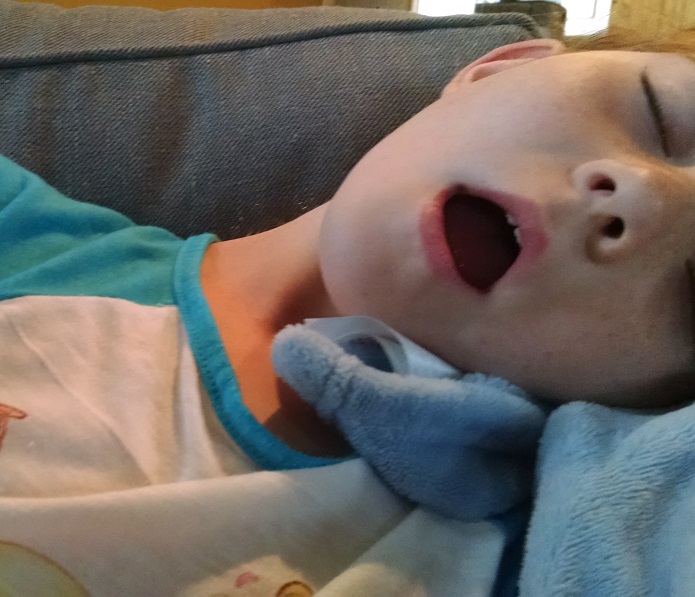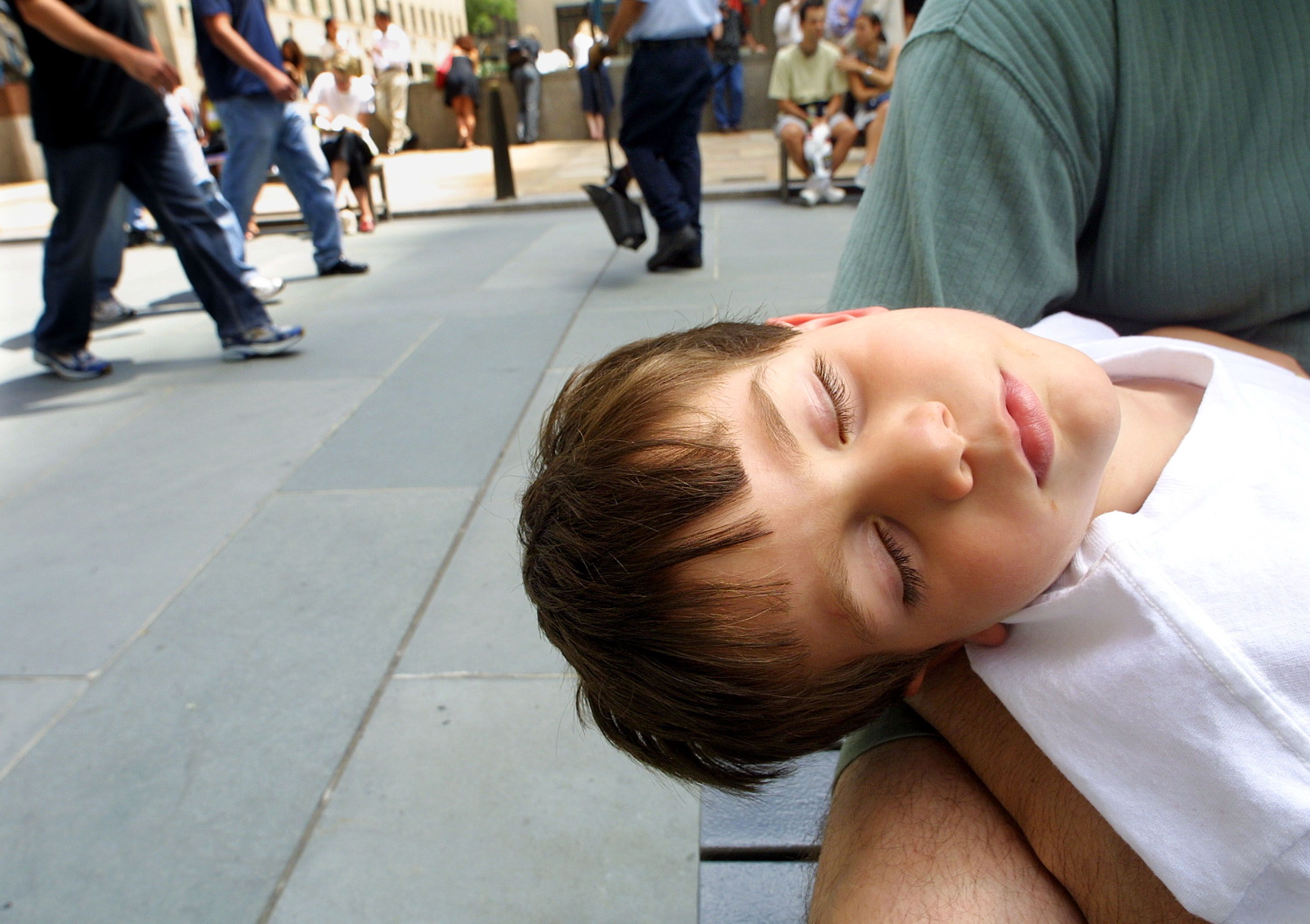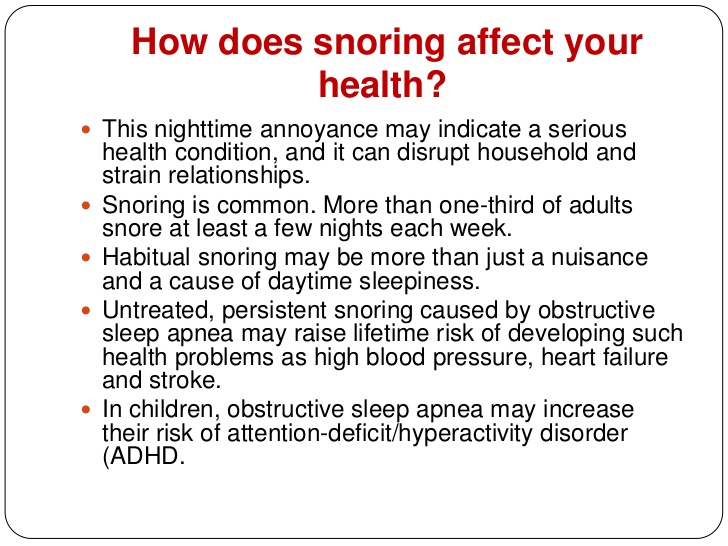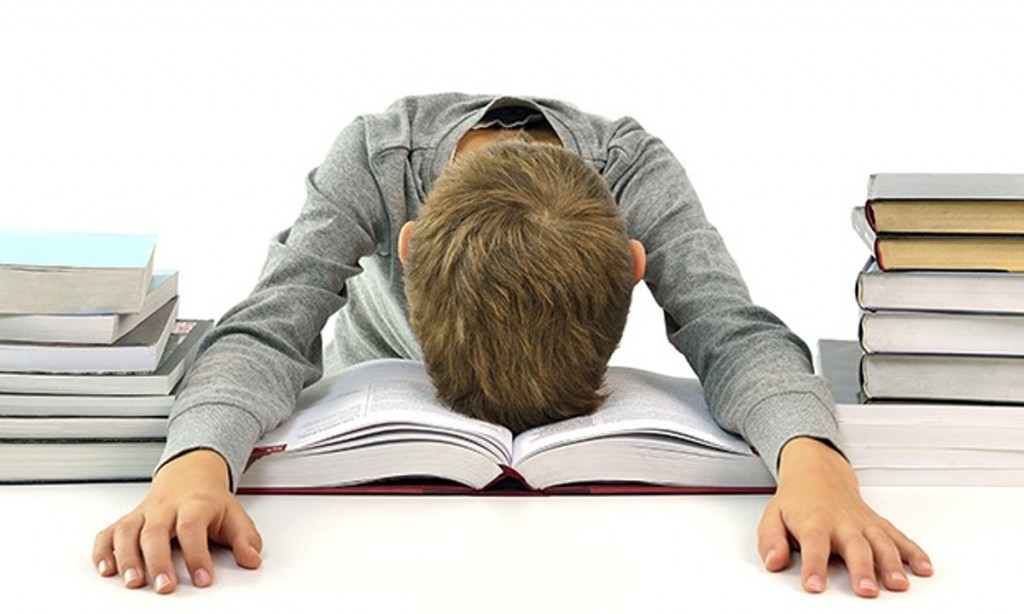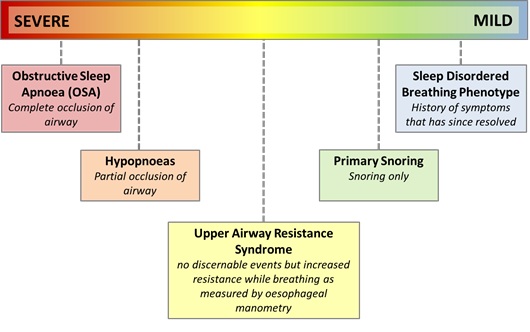Attention Deficit Hyperactivity Disorder ADHD Linked with Sleep Apnea
More and more children are being diagnosed with Attention Deficit Hyperactivity Disorder (AHDH) with rates rising by more than 20% in the four years from 2003-2007. There is growing evidence that some of this may be due to misdiagnosis with sleep problems triggering similar symptoms. This seems odd, because sleep apnea and other problems related to not having enough quality sleep, should make the children tired and sluggish, not super active. However, while adults who do not get enough sleep show symptoms of drowsiness and sluggishness, sleepless children often develop symptoms resembling those of Attention Deficit Hyperactivity Disorder (ADHD). They become wired and 'spaced-out', unresponsive, moody and obstinate. Many may have trouble maintaining focus and attention and getting along with friends and family.
There is no suggestion that ADHD does not exist, but the recent research suggests that sleep deprivation and apnea problems should be ruled out. Misdiagnosis may led to the use of drugs and other treatments that may exacerbating the problem and not provide a cure or remedy. This article reviews the research on this topic and its implications for parents.
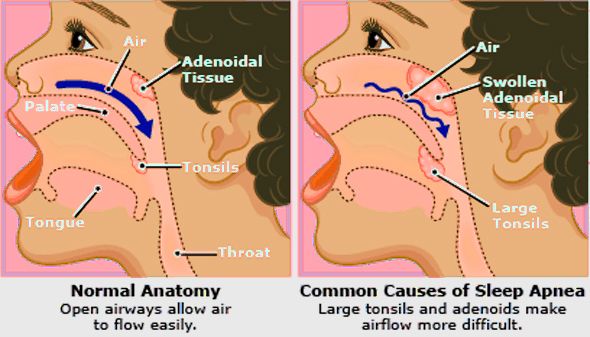
Review of Latest Research
The latest research suggesting the link between sleep problems and attention disorder was published in the journal Pediatrics. The study involved 'Strengths and Difficulties Questionnaires' conducted for long-term monitoring of 11,000 children in Britain over a six year period, beginning when the children were 6 months old.
The study found a strong correlation between children whose sleep was disturbed by various breathing problems at night, like mouth breathing, snoring or apnea and behavioral problems resembling ADHD. There was a 40-100 percent increase in the likelihood of these behavioural problems compared with children that did not sleep problems related to breathing issues.
The most common form of apnea in children is obstructive sleep apnea (OSA). Sleep apnea is a pause in the normal regular breathing pattern during sleep, triggered by some form of obstruction in the upper airways are blocked or impeded, preventing the normal passage of air to and from the lungs. This is distinct from central sleep apnea which arises because of impaired signals from the brain.
Obstructive Sleep Apnea (OSA) in Children
The collapse or restriction of the upper airway when sleeping, induced by lying down impedes the air flow to the lungs until the obstruction is relieved. This can lead to changes in level of oxygen and carbon dioxide in the blood. These changes usually trigger a physical arousal in the child designed to correct the problem. If this occurs over and over again it disrupts the sleep patterns. OSA is known to affect about 2-5% of children and is more prevalent in children with Down syndrome, low muscle tone issues, face and neck abnormalities, and obesity.
Why is Sleep Apnea a problem?
Sleep apnea is a potentially serious health problem in both adults and children.
In adults, OSA is known to cause
- right-sided heart failure
- pulmonary hypertension
- higher risk of stroke
- increased incidences of heart disease
- poor sugar tolerance
- high blood pressure
In children, in addition to all of these, it is also known to cause
- increased attention problems
- decreased school performance
- delayed development
- poor growth
How do I know if my child has OSA?
Children with OSA display the following symptoms and behaviours during sleep:
- Most OSA children snore regularly, and when they snore there are often snorting, pauses in breathing, choking and small gasps for breath.
- TOSA children often breathe with their mouth open, and sleep with extended, stretched-back necks as they make reflex attempts to open their upper airways and breathe more freely.
- Children with OSA may show changes in behavior at home or for their performance at school.
- Such children may complain about waking up headaches or a dry mouth.
- Nighttime bed wetting re-occurs after ceasing for months or years previously.
- The only way to confirm OSA is by doing a sleep study in a lab. Most children diagnosed with OSA are referred to an Ear, Nose and Throat specialist and in many cases they suggest removal of the tonsils and the adenoids. While this helps with about 85% of children, the success rate is lower in older children who are obese.
Children at with the highest risk of developing attention deficit behaviors in the study of 11,000 children in Britain study were reported as having sleep-disordered breathing that occurred throughout the six years of the study but the highest risk occurred at an 2 1/2 years of age. The researchers have called for more screening for sleep problems the way we screen for vision and hearing problems. There is also a need for creating increase awareness of the problem and its consequences.
This research followed previous studies that showed that children had fewer behavioral issues after their tonsils and adenoids were removed, presumably because they slept better. These children also showed lower tendenciesto be given an ADHD diagnosis in the ensuing months and years. Children diagnosed with ADHD before having their adenoids and tonsils removed behaved much better after surgery in some cases no longer met the diagnosis criteria. The researchers did not advocate that all children with ADHD should have their adenoids and tonsils were removed, but hat sleep problems should be looked at as a possible cause of the symptoms.
The behavioral problems linked with interrupted sleep and nighttime breathing difficulties may occur with relatively mild obstructions and brief periods of waking. Children who have inadequate sleep because of a sleep disorder or just staying up too late playing video games, using social media and textingcan also develop symptoms similar to those of ADHD (See: Teenage Sleep Requirements, Lack of Sleep, Ensuring Teens Get Enough Sleep).
Recent research shows thatless than 10 % of parents know the number of hours of sleep their child needs as they get older. Many parents are also unaware of sleep disorders in children and think that snoring is cute and means their child was sleeping deeply and soundly.
Drugs commonly used to treat ADHD, like Adderall, Ritalin or Concerta, can cause Insomnia
Because of this, and incorrect diagnosis, the situation can become an expanding and worsening cycle, and proper diagnosis is critical to effective treatment of OSA and ADHD.
Additional Information on Obstructive Sleep Apnea
Symptoms of Obstructive Sleep Apnea Syndrome (OSAS or OSA)
While snoring is a common among about 10-20 percent of children on a regular or intermittent basis, it is vital to be able to recognise the additional symptoms obstructive sleep apnea in children. These key symptoms include:
- mouth breathing
- laboured breathing
- pauses in breathing
- prolonged deep snoring
- gasping for air at night
- waking frequently at night
- excessive daytime sleepiness
- enlarged tonsils and adenoids
- problems sleeping and restless sleep
- irritability or tiredness during the day
- changes in color of the face (turning blue or pale)
- bed wetting or waking up to use the bathroom, frequently
- failure to thrive normally (weight loss or poor weight gain)
- daytime cognitive and behaviour problems. These include aggressive behaviour and hyperactivity, problems paying attention and general problems at school
